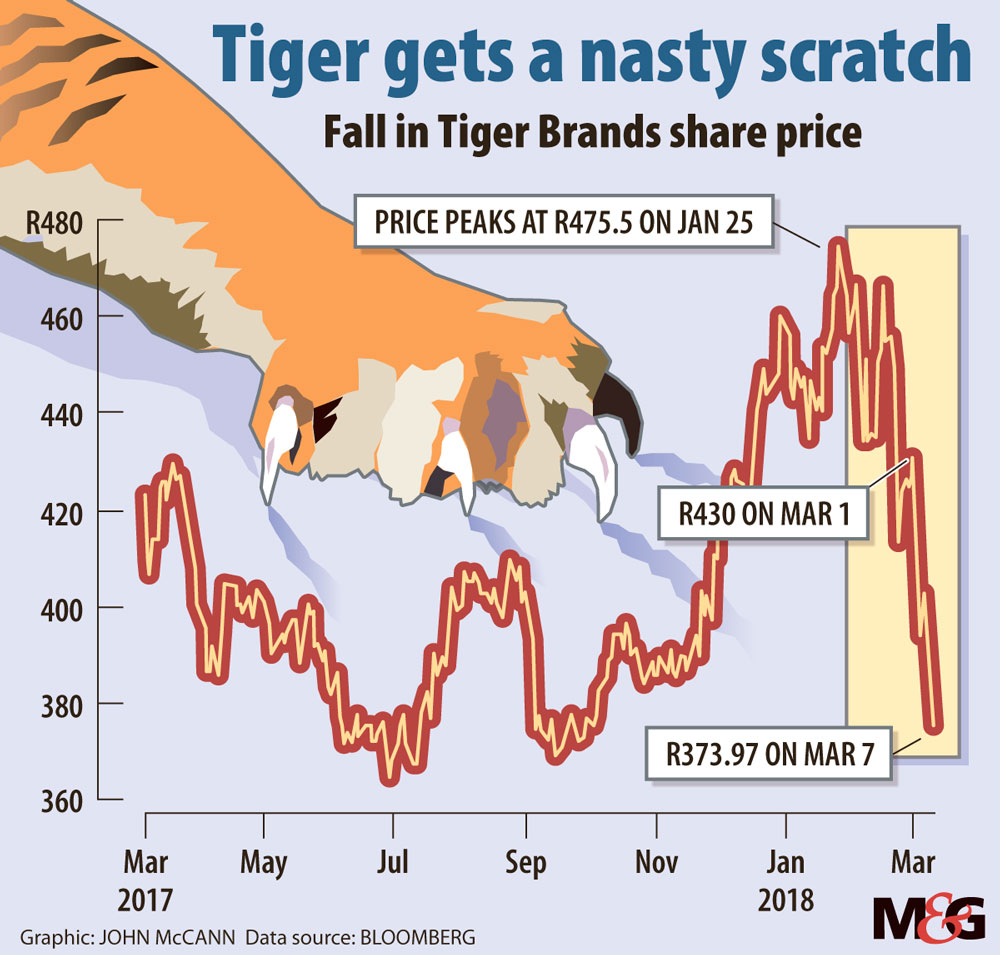Joan van Dyk tells you what to bin and how in under two minutes.
Environmental health officials from the Capricorn district municipality had to ask for police assistance to gain access to the Enterprise Foods manufacturing plant in Polokwane, which has been named as the source of the listeriosis outbreak.
According to the municipal manager, Nokuthula Mazibuko, she received a report that the officials had been refused access to the factory so, on February 2, she requested police assistance.
This corroborates claims by a well-placed government official, who said local health inspectors were twice refused access to the factory and that police were present when a large delegation of government officials and international medical experts visited the plant on February 2.
The Mail & Guardian has not been able to establish the date of the first attempt to inspect the plant but the second was on January 31, the source said.
The February 2 delegation, which included a representative from the national department of health, local and provincial officials and officials from the National Institute of Communicable Diseases (NICD), the department of agriculture, forestry and fisheries and the World Health Organisation, took environmental and food samples.
According to the source, because local officials had previously been denied access, the police were asked to accompany the delegation. After about a 30-minute wait, the delegation was allowed to enter the plant without needing the police to accompany them.
Lawrence MacDougall, the chief executive of Tiger Brands, which owns Enterprise Foods, said the company was not aware that the official was denied access on January 31 and apologised for this. “Our employees at the Polokwane factory have been given instructions to allow officials presenting valid identification access to the plant.”

Health Minister Aaron Motsoaledi announced on Sunday that NICD scientists had managed to trace the source of the outbreak to the plant.
A particular strain of Listeria monocytogenes, known as ST6, was established as being responsible for the outbreak. It was found at the Polokwane factory but MacDougall said the company had yet to receive confirmation of this from health officials.
So far, listeria has killed 180 people and 948 have become ill.
Products made by Enterprise Foods, including its frankfurters, smoked Russians and polony, have been recalled. Polony products made by Rainbow Chickens Limited (RCL) have also been recalled after listeria was found at its Wolwehoek factory in Sasolburg, although the ST6 strain was not present.
Tiger Brands has since closed its Polokwane and Germiston factories. Listeria had also been detected at the latter. It has also recalled all its ready-to-eat meat products and not just those specified by the government.
Enterprise produces 60 000 tonnes of processed meat annually at its Germiston and Polokwane plants.
Mozambique, Malawi, Namibia and Zambia have recalled the products but countries such as Kenya have banned them outright.
Mazibuko also said the municipality advised the company in a letter of the results of its inspection on February 27. It made recommendations as part of a compliance notice, one of which was that it had to halt production of its ready-to-eat products.
She said the test results showed that, out of 71 environmental samples taken from raw meat waiting to be processed, 33 were positive for listeria. Out of 161 environmental swabs taken from the plant’s polony processing line, 84 were positive, and out of 89 environmental swabs from viennas in their production section, 21 were found to be positive.
“On the basis of those findings, we issued a compliance notice,” she said.
It recommended that the plant be subjected “to deep cleansing and focus is given on all processing line where the listeria has been isolated. The second recommendation is that the production process be put on hold until such deep cleansing is done,” she said.
During February, internal tests by the company showed the presence of listeria in its Mielie Kip polony, which the company recalled immediately, even though the levels were well below those of the South African National Standard guidelines, to which the company adheres, according to MacDougall.
He said, when the company met the municipality, it showed officials all the steps it had already taken, including amplified deep-cleaning protocols and test results, which showed how successful the processes had been.
“They were satisfied with the steps and the results of these initiatives,” he said, adding it would “not be necessary to continue with this temporary closure”. The subsequent decision by the company to close both plants was a voluntary one, he said.
But Mazibuko said: “I don’t think there is evidence of such satisfaction in what I have given you. Between the date of the letter up to the date, we haven’t been alerted that they are ready for resampling or testing, so the recommendations still stand.”
Nevertheless, the company appeared to be complying with the notice, she said.
“It will be up to Enterprise then to alert us that they are done with the deep cleansing, so that we can do the resampling, so that we can do the re-inspection, and the way forward will then depend on the outcome,” she said.
MacDougall maintained that the company has yet to see any evidence linking its products to the ST6 strand of listeria. But scientists are confident that they have established a link between the outbreak and Enterprise Foods.
The head of the centre for enteric disease at the NICD, Dr Juno Thomas, said it had about 25 environmental samples taken from that factory that were confirmed to contain the outbreak strain.
“From a scientific evidence point of view, there is no doubt that products from that factory … caused the outbreak, and that patients who developed disease with the outbreak strain, who ate products from that factory, developed disease directly from those products,” Thomas said.